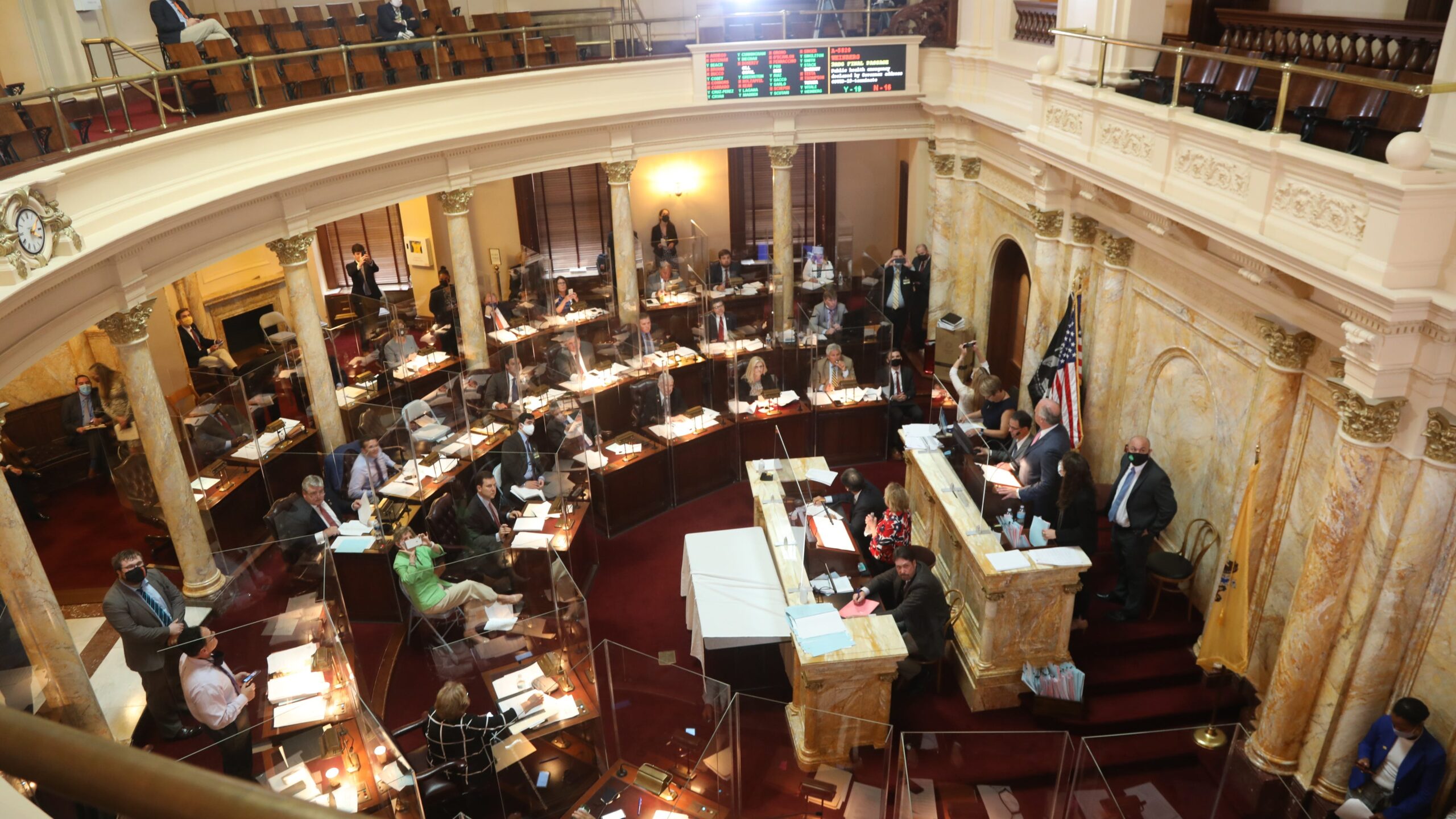3-minute read

These are candidates running for NJ governor in 2025 election
Wondering who is running for New Jersey governor in 2025? Here are the names to know for the election.
This is “Jeopardy!” the campaign edition. Yes, the New Jersey gubernatorial primary might still be months away but anyone who has flipped on America’s most beloved trivia game will have heard by now that Mayor Steve Fulop took a wrecking ball to corruption in Jersey City, that Rep. Josh Gottheimer is going to fight for New Jersey using common sense and that Sean Spiller — teacher’s union president — supports teachers.
And that’s just one-half hour on one network five nights a week. With a primary date creeping ever closer, candidates from both sides of the aisle have to consider ad buys and target demographics as they try to edge out their competition.
Micah Rasmussen, director of the Rebovich Institute for New Jersey Politics at Rider University, said it’s not unusual for candidates to target specific audiences for whom their messaging resonates.
He said former Senate President Steve Sweeney has an ad that is an “overt appeal to seniors, so he will want to make sure seniors see that ad.”
On the other hand, Rasmussen said, “If Mikie Sherrill can target her ads to television that is seen by suburban women, she believes she has a strong connection with them.”
For Republicans, Rasmussen said “since MAGA is every candidate’s target audience at least for the primary, you can expect that putting ads on Fox will be most important.”
What are NJ candidates spending on advertising?
As of April 7, there were no contracts or invoices with commercial broadcast channels posted by the Federal Communications Commission for three Democrats: Newark Mayor Ras Baraka, Sweeney and Sherrill and two Republicans: state Sen. Jon Bramnick and radio personality Bill Spadea.
Fulop has spent the most with ad buys, more than $1.7 million across five networks in the New York and Philadelphia markets as well as about $84,000 in political action committee, or PAC, funds.
Rasmussen said that seems to be part of Fulop’s bigger strategy. The Jersey City mayor is working outside the traditional county party model and creating his own ticket, including candidates for Assembly, which has all 80 seats on the ballot this year.
“He has long known he would need to build his own name recognition and voter communication,” Rasmussen said. “It makes sense that he started sooner than others who are leaning more heavily into the support of the county parties.”
Former state Assemblyman Jack Ciattarelli, who narrowly lost to incumbent Gov. Phil Murphy in 2021, is the only Republican to have any filings, with about $181,000 spent in both the New York and Philadelphia markets.
There are also filings for Gottheimer and Spiller, about $650,000 and about $23,000, respectively, but both listed PACs as the funding for the ads.
Television remains a political tool
The idea of using television to appeal to voters has been around for generations. The pivotal debate in the 1960 presidential campaign is considered by many to have launched the television era in politics. In that era, the prevailing political wisdom has been that should candidates look good on camera, people are more inclined to listen to them.
“The single-most effective way to campaign is to meet voters face to face. It allows voters to cast their ballots for someone they know first-hand,” Rasmussen said. “So we’ve long known that when you can’t meet everyone, the next best thing is a television ad, because viewers can still see a candidate’s face and hear a message directly from them.”
Rasmussen noted that “some messages are particularly warm for television” so highlighting a “strong biography to convey, such as Sherrill’s military background, Fulop’s climb to the building rooftop or Sweeney’s blue collar appeal of working with his hands.”
The ads aren’t going away any time soon either. While the contracts posted only run into April, new postings allow for contracts to be added as the race progress, and with the primary set for June 10, it’s unlikely they’ll stop.
Katie Sobko covers the New Jersey Statehouse. Email: [email protected]
